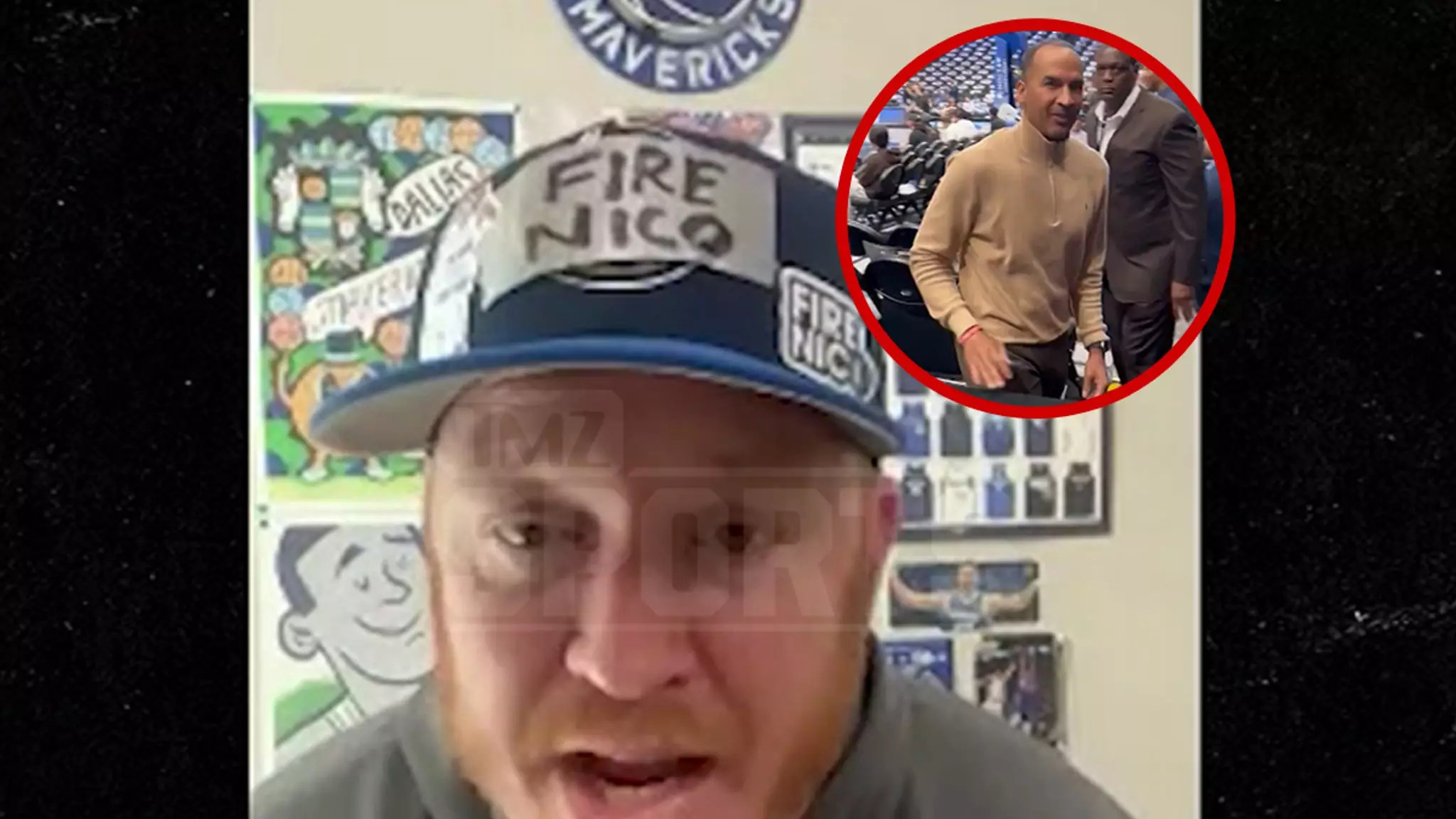In the world of sports, fans are often the heartbeat of the game. Their passion can energize a stadium or, as in the case of Chris Taylor, spark a fierce confrontation. During a recent game between the Dallas Mavericks and the Brooklyn Nets, Taylor’s outburst at Mavericks GM Nico Harrison garnered attention not just for its intensity, but for the fallout that ensued. When fans voice their dissatisfaction, it serves as a crucial avenue for dialogue about the direction of a team. However, this interaction turned problematic when Taylor alleged that his phone was forcibly taken and smashed by someone he believed was connected to the Mavericks organization.
The balance between passionate fan engagement and respectful discourse is precarious. While Taylor may not have chosen the most tactful method to express his frustration—yelling “Fire Nico” directly into Harrison’s face—his sentiments reflect a growing unrest among Mavericks supporters regarding team management decisions, particularly following significant trades. Enthusiasts of a franchise are more than just spectators; they see themselves as stakeholders, advocating for their team’s success and future. When their trust is shaken, the fans’ reactions can spill into chaos, igniting conversations about accountability and support.
The Aftermath: Fan Rights and Team Responsibility
The situation escalated when, after Taylor’s disruptive encounter, he reported that an individual associated with the Mavericks aggressively intervened. This raises vital questions about fan rights in sports arenas. Shouldn’t a venue that promotes community and interaction between fans and management encourage a culture of open dialogue without fear of retaliation? Taylor’s assertions indicate a potentially troubling attitude within the organization—if true, it implies a willingness to silence dissent rather than engage with it.
Moreover, Taylor’s decision to pursue legal action speaks volumes about the relationship between fans and teams. In an age where consumer rights are highly valued, fans should expect a level of protection within their environment. If a team fails to act on an incident such as the one Taylor experienced, it can be perceived as a tacit endorsement of hostile behavior towards fans. The Mavericks’ lack of response to Taylor’s complaints exacerbates the situation, embroiling the franchise in a narrative that hints at a lack of transparency and accountability.
Support in Numbers: The Power of the Community
Interestingly, amidst the chaos, Taylor claims to have received considerable support from other fans who resonate with his plight. This solidarity underscores the shared sentiment of many Mavs supporters. Frustrations regarding team decisions, particularly significant trades that shift the overall trajectory of the franchise, are often magnified through collective voices. The camaraderie among fans can amplify calls for change and create a platform for constructive criticism.
In confronting authority, Taylor embodies what many fans might wish to express but feel unable to due to fear of repercussions or exclusion. Nevertheless, his experience raises essential questions: Is there a breaking point for fans? How far can discontent go before it morphs into aggression? When do teams need to recognize the weight of fan culture, especially when it lays bare concerns regarding leadership and direction?
The Mavericks, like any professional sports team, must strive for a harmonious relationship with their fan base. Disregarding the fans’ voices in favor of maintaining a rigid control can lead to long-term alienation, which may ultimately prove more damaging than any single altercation in the stands. Listening, engaging, and responding appropriately is crucial for any franchise that wishes to thrive within an emotionally invested community.

